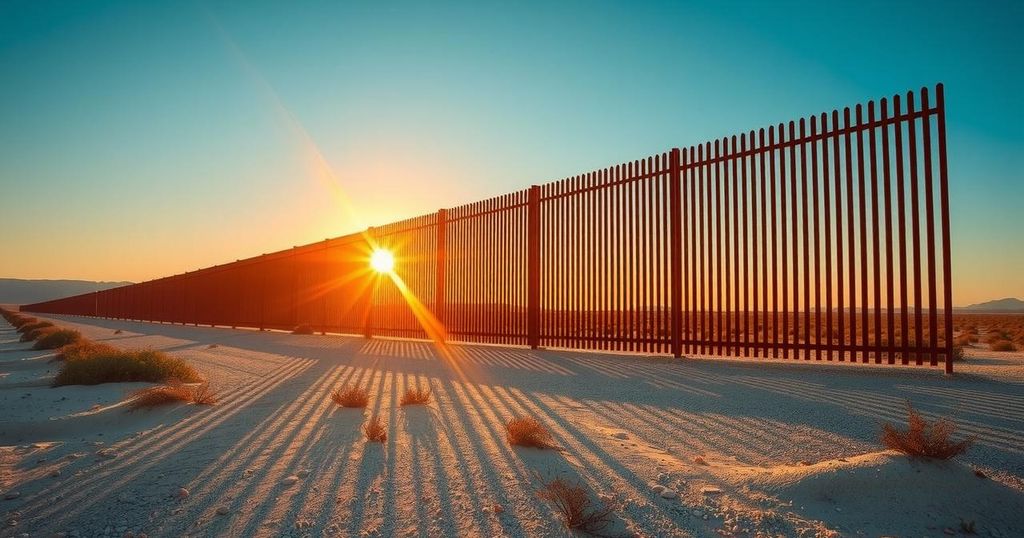Significant Decline in Illegal US-Mexico Border Crossings Amid Trump Administration Policies

Illegal crossings at the US-Mexico border have significantly decreased from over 130,000 in February of the previous year to around 8,300 this February, a 94% drop, attributed to President Trump’s crackdown on illegal immigration. His measures entail suspending the asylum system, heightening deportations, and deploying troops. Analysts recognize the effectiveness of these strategies, though concerns arise regarding the treatment of legal immigrants and adherence to civil liberties amidst these policies.
Since his reinstatement to the presidency two months ago, United States President Donald Trump has implemented various executive actions aimed at reducing illegal immigration. In February of the previous year, over 130,000 individuals were recorded attempting to cross the US-Mexico border illegally, whereas this February, the encounters significantly decreased to approximately 8,300, reflecting a 94 percent decline, as reported by the US Department of Defense.
Border Patrol Chief Mike Banks has attributed this remarkable drop in illegal crossings to Trump’s strong enforcement of immigration policies. Trump’s initiatives, which include suspending the US asylum system, enhancing deportation efforts, and deploying more military personnel to the southern border, appear to be fulfilling his campaign promise to secure national borders. Additionally, Trump negotiated with Mexico to deploy troops along the border, delaying potentially damaging tariffs on Mexican imports.
The administration’s rigorous crackdown on immigration serves as a deterrent for individuals contemplating illegal entry into the United States, as suggested by observers. Reports indicate that since the enforcement measures began, deportations have significantly increased, with media coverage showcasing flights transporting detained migrants, including over 250 alleged Venezuelan gang members deported under the Alien Enemies Act.
Advocates for immigrant rights have challenged these deportation practices. Lee Gelernt of the American Civil Liberties Union expressed concerns over the potential misuse of wartime authority to deport immigrants, stating, “We’re on very dangerous ground here” regarding the implications of such actions on civil liberties. Advocates find it increasingly difficult to counter Trump’s legal maneuvers, particularly as he has publicly criticized a ruling judge.
Despite ongoing legal challenges, some analysts believe that Trump’s immigration strategies are effectively curtailing illegal crossings. Tony Payan from the Baker Institute acknowledged that while the effectiveness of these policies could be debated on moral grounds, they have succeeded in reducing unlawful entries. He cautioned, however, that the prior administration’s policies played a role in the decline and that Trump’s tactics further intensified this trend.
Concerns are rising regarding the impact of stringent immigration policies on legal residents. Numerous reports highlight instances where immigrants entitled to remain in the US have faced detainment, including legal green card holder Mahmoud Khalil, a pro-Palestinian activist. The State Department has indicated ongoing monitoring of visa holders, while plans to withdraw temporary legal status for over half a million migrants from Cuba, Haiti, Nicaragua, and Venezuela are also forthcoming.
In summary, the recent decline in illegal crossings at the US-Mexico border coincides with President Trump’s aggressive immigration policies and executive actions aimed at securing the borders. While these measures may be effective, concerns persist regarding their moral implications and the potential impact on legal immigrants. Observers advocate for a careful examination of how enforcement practices intersect with civil rights, as the landscape of US immigration continues to evolve under the current administration.
Original Source: www.channelnewsasia.com






